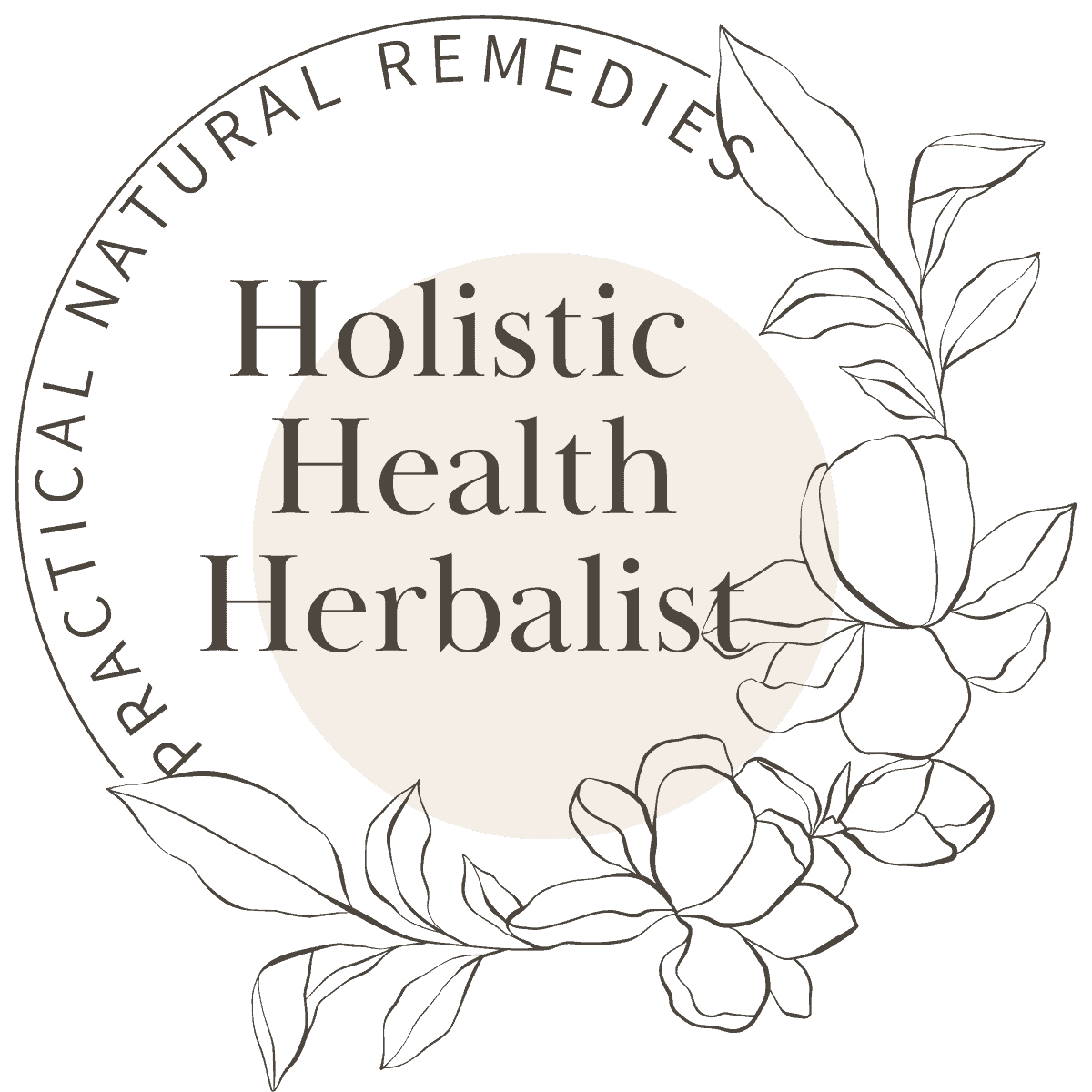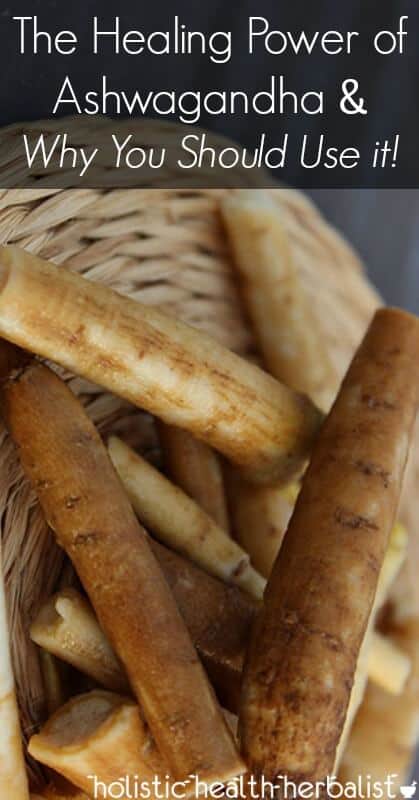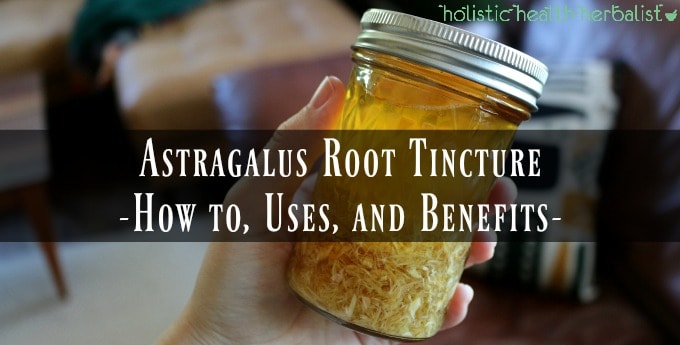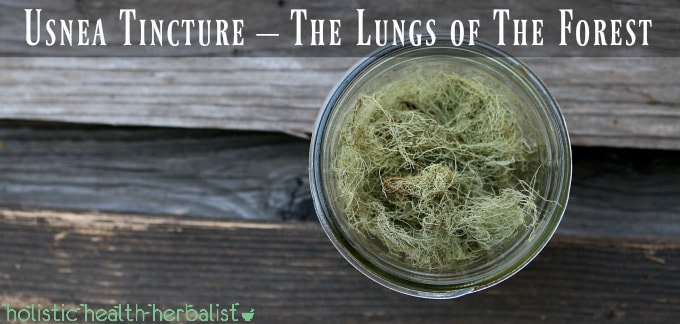Ashwagandha has become increasingly popular as a revered medicinal plant known to strengthen those who are burnt out and tired and calm those who are anxious. This incredible herb is full of amazing properties that have been used in Ayurvedic medicine for thousands of years to help increase the body’s resistance to physiological and psychological stress, making it perfect for those faced with the constant bombardment of modern life.
It’s no wonder that ashwagandha has enamored the masses in recent months!
Ashwagandha Properties and Benefits
The name “ashwagandha” translates to mean “smell of a horse” which I imagine must come from not only the scent of the herb but also relates to the strength and virility of a stallion. While not the tastiest herb, or the best smelling for that matter, ashwagandha is undoubtedly one of the best herbs to incorporate into your supplement routine for strengthening your defenses against all things stress.
Below is a list of some of the properties and benefits of ashwagandha (there’s a lot!) and why you may want to consider looking into this unique and supportive herb.
I swear I’ve seen it mentioned all over a lot of health and wellness blogs I follow and in most of my Youtube feeds as well, so I think it’s high time to jump on the bandwagon amiright?
The Properties and Benefits of Ashwagandha
Common Name: Winter Cherry, Indian Ginseng
Botanical Name: Withania somnifera
Family: Solonaceae (nightshade)
Parts Used: Mainly the roots but the leaf and berries can be used
Properties: Adaptogen, anti-inflammatory, anti-oxidant, antispasmodic, anxiolytic, aphrodisiac, astringent, cardio-protective, diuretic, hormone tonic, immune-modulator, nervine, sedative, nutritive, rejuventative
Plant Uses: Anxiety, arthritis, asthma, degenerative disease, fatigue, hypothyroid, insomnia, insulin resistance, longevity, low libido, and reproductive health.
Preparations: Capsule, decoction, poultice, powder, and tincture.
Flavor: Sweet, bitter
Polarity: Yang
Energetics: Warming
Moisture: Moist
Element: Fire
For thousands of years, ashwagandha has been used to support, tone, and revitalize the body and its everyday functions. It is both relaxing and energizing in nature, making it the perfect herb for nourishing and supporting a healthy nervous system when stress causes hyper activity in the body. With the consistent use of ashwagandha, these hyper stress reactions can naturally resolve themselves, allowing for a calming effect on the body that ups the it’s resistance to stressful situations.
Ashwagandha and Ayurvedic Uses
In ayurvedic medicine, ashwagandha is considered a rasanaya (meaning “path of essence”) herb and is revered for its deeply rejuvenating properties, for longevity and sustaining good health through the elder years, for stimulating the mind, and enhancing energy and vigor. It is primarily used to balance vata and kapha dosha types.
In India, it is widely used to treat malnutrition in children and the elderly, coughs, a foggy mind, asthma and other breathing conditions, fevers, ulcers, rheumatism, infertility, and even paralysis.
In the Punjab this herb is used for lower back pain and as a tonic for sexual health while in other regions, it is used for digestive upset, lumbago, bedsores, boils, glandular swelling, as an anti-parasitic, to improve weakness, boost sperm count, as a uterine tonic, for ringworm, conjunctivitis, as an essence for cold and flu recovery, and as a treatment for alcoholism.
So, as you can see, ashwagandha has a wide range of uses!
Nowadays, this amazing herb is primarily used as a calming adaptogen to help enhance endocrine function by restoring regularity in the thyroid, adrenal glands, and the sexual organs of both men and women.
In fact, there are few herbs known to directly influence the thyroid, but studies have shown that ashwagandha is one such herb, making it perfect for treating hypothyroidism and other sluggish thyroid conditions.
Because of its soothing nervine and calming adaptogenic functions, ashwagandha is effective for treating chronic fatigue, brain fog, nervous exhaustion, anxiety, and stress-induced insomnia.
For women with heavy periods, taking ashwagandha powder mixed with molasses is an excellent way to boost iron levels and relieve symptoms of anemia.
Why You Should Use Ashwagandha
There are many reasons you may want to start implementing this amazing herb into your daily supplement routine. Below are a few of my reasons for using it.
I like to use ashwagandha for:
• Boosting energy levels, strength, and vitality
• Calming the mind and supporting mental processes
• Encouraging healthy sleep
• For improving thyroid function (ashwagandha is known to improve Graves disease and Hashimotos)
• For reducing stress and boosting the body’s resilience to stressful situations
• For stabilizing blood sugar levels and correcting insulin resistance
• For treating adrenal fatigue
• Supporting a healthy immune system (ashwagandha is known to increase four different immune system cells and boost immune cell activation)
• Supporting a healthy reproductive system for both men and women
• Supporting healthy joints and spine
Why Others Enjoy Using Ashwagandha
Ashwagandha for Supporting Thyroid Function
As I mentioned before, ashwagandha is one of the few herbs known to directly influence the thyroid and can help those with underactive or overactive thyroid issues by bring the body back into balance. It has been shown to boost a sluggish thyroid by increasing T4 (thyroxine) and greatly reducing lipid peroxidation by protecting the body against free radicals.
It’s as if the herb knows if things are too high or too low and brings them back into balance. This is what makes ashwagandha so unique.
Ashwagandha for Adrenal Support
One of the reasons I’ve been taking ashwagandha powder is for its unmatched ability to restore healthy adrenal function and helping me heal the effects of chronic fatigue.
The hormone responsible for controlling the body’s stress response is known as cortisol or the “stress hormone”. When the adrenals become overworked because of recurrent stressful events in our lives like sitting in traffic, work, school, finances, and other personal situations, the adrenals keep us in a constant state of “fight or flight”.
This overabundance of physical, mental, and emotional stress can lead to adrenal fatigue and even adrenal burnout where cortisol levels flatline and you feel like a zombie all day. If this becomes chronic, other hormones in the body become imbalanced as a result which can create all sorts of havoc.
It had been shown time and time again that taking ashwagandha rebalances cortisol levels and other hormones during times of stress whether it is physical, mental, or emotional.
Ashwagandha for Brain Fog
It goes without saying that continued periods of emotional, mental, or physical stress can have a debilitating effect on the brain and nervous system.
In order to keep stress from causing mental fatigue, brain fog, and cloudy thoughts, it’s important to consume plenty of free radical fighting foods in our diets. Since most people have trouble getting in their daily recommended servings of fresh fruits of vegetables, it’s more important than ever to try and fill the gaps with superfoods that are rich in anti-oxidants.
Ashwagandha is not only an effective stress reliever, it also protects the brain from degenerating diseases like Alzheimer’s, Depression, Anxiety, and other mental disorders. It’s high content of anti-oxidants protect the brain from lipid peroxidation that cause our mental fortitude to decrease.
Supplementing for just 20 days has shown significant improvement in mental health and positive mood.
Ashwagandha for Mental Health
As I mentioned in brain health, ashwagandha is also an effective treatment for anxiety, nervous exhaustion, and depression since it works as a monoamine oxidase inhibitor, thereby increasing the availability of the neurotransmitter dopamine (the happiness chemical in the brain). It also seems to mimic the action of GABA, a neurotransmitter known to relax the body and clear the mind.
Ashwagandha also relaxes the blood vessels and instills an overall feeling of comfort and well-being allowing for stress and tension relief.
Supplementing with 300mg of ashwagandha powder for 12 weeks has been shown to improve symptoms of anxiety, stress, and reduced focus while also reducing chronic fatigue without the side effects of anti-anxiety and anti-depressant medications.
Ashawagandha for Energy and Improved Stamina
Ashwagandha is an excellent herb for increasing stamina and boosting endurance during exercise and other forms of physical activity by reducing muscle aches and pains and sharpening our focus, allowing for better reaction time. It hones concentration and working memory, encourages motivation, energizes the brain, and lowers stress hormone levels.
Taking ashwagandha extract has been shown to balance the hormones involved with physical activity, sore muscles and joints, and keeping energy levels consistent. This makes it a great supplement for athletes.
Ashwagandha for Restful Sleep
If you’re someone who often feels tired and run down but struggles to get a good night’s sleep, then ashwagandha may be just the herb you need.
Ashwagandha both strengthens and calms the nervous system which over time can naturally restore a healthy sleep cycle and even relieve stress-induced insomnia and anxiety. And, since ashwagandha is a calming adaptogen, it will not overstimulate people with anxious constitutions and will therefore decrease anxiety, nervousness, and stress while soothing the nervous system as a whole.
How to Use Ashwagandha
For those 18yrs and older.
Tincture – 30-40 drops up to 3 times per day (1:5, 45% alcohol)
Decoction – Add ½ teaspoon of dried ashwagandha root to 8oz of boiling water. Boil for 10 minutes, remove from heat and steep for a further 30 minutes. Drink 4oz up to 3 times per day. Keep in mind that the dried root is only effective for 2 years after harvest and will begin to lose its potency. You can learn more about making decoctions here.
Capsules – Take one 400-500mg capsule up to twice a day. I like this one.
I personally like to take capsules or simply add 1 teaspoon of ashwagandha powder to my morning smoothie with banana, cinnamon, honey or dates, and almond milk.
How to Use Ashwagandha Safely
Ashwagandha is widely considered to be a very safe herb, but there are still some precautions to note before use.
If you are sensitive to the nightshade family (i.e. tomatoes, eggplant, peppers, potatoes, etc.) then it is not recommended to take ashwagandha.
Do not take ashwagandha if you have excess iron levels as this herb is high in iron.
Discontinue use during times of upper respiratory infection or when there is copious amounts of mucus present.
Avoid use during pregnancy.
Do not use if you take barbiturates (sedative/nervous system depression drugs)
Prolonged overuse can aggravate pitta dosha types.
Have you tried ashwagandha yet? Please share your experiences in the comments below!
Sources:
Prescription for Herbal Healing by Phyllis A. Balch
Adaptogens by David Winston and Steven Maimes
The Way of Ayurvedic Herbs by K.P. Khalsa and Michael Tierra
The Complete Medical Herbal by Penelope Ody
You may also enjoy reading:
Stress Reducing Kava Kava Massage Oil
Could Herbs be Your Answer for Stress Relief?
Essential Oils for Stress
How to Make a Parasympathetic Roll-On Blend for Stress Free Eating








Chrissie says
As a healthy and genera anxiety sufferer I turned to Ashwaganda as an alternative to medication. I started about 2.5 months ago and can not be happier with my results. I am calm, rational and best of all no longer fearful. My list can go on and on and I am just thrilled. I take it everyday but after reading this, I will use it in place of my iron supplement instead of taking it with it. This herb has done wonders for me. I am now left wondering how long I can take it on a daily basis without overdoing it? Thanks for the great post!
E.L. Ohanian says
Thank you Tash.
Is Ashwaganda as effective in the Homeopathic form as it is in the herb form ?
Thank you, again
E.L. Ohanian
Annie says
Initially, I bought the Gaia thyroid herb because I was so obsessed with self diagnosing myself as having a thyroid issue. My labs came back normal but I took the herb anyway because I couldn't return it. It's main ingredient is ashgawandha. I noticed after a few days all the pain throughout my body disappeared. I had terrible plantar fasciitis in both feet. Gone. Terrible TMJ (lock jaw) for years to the point I couldn't cough, sneeze or eat...gone. Terrible heavy menstruel flow which was making my life miserable, regulated. My entire back was in pain, now that's gone. I used to cry to my doctors and beg them for relief and they did nothing but I did accidentally self treat all my issues through the most uncommon of ways: by obsessing about one thing, not having it, and accidentally treating every other issue in my body. Whatever mixture of herbs is in the Gaia one has helped me tremendously. The plantar fasciitis was the worst because I couldn't walk and it was making me become extremely depressed. I used to stay indoors in bed a lot to avoid the intolerable foot pain. I swear the herb gave me a new lease on life. I'm scared to try any other mixtures of ashgawandha because the Gaia thyroid one works so well so I can only swear by that one.
Tash says
Wow, Annie! This is amazing! I hope that you continue to experience relief 🙂
Debi Kravats says
I really want to stop taking my depression drugs. I take Pristq and Wellbutrin. Is it safe to take the Ashwagandha while taking my prescription meds? I also want to start taking Gabba Plus.
Tash says
Hi Debi! It's hard to say. I know it interacts with immune medications, but I'm not sure about antidepressants. I did a quick search and this is what I found for Pristiq: https://www.ehealthme.com/drug-interaction/ashwagandha/pristiq/ and for Wellbutrin: https://www.ehealthme.com/drug-interaction/wellbutrin/ashwagandha/
Michelle@NaturallyEverAfter says
Thanks for this in-depth guide! I started taking ashwagandha supplements a few months ago when I noticed some hormonal issues and had a lot of stress with moving across the country. Taking this in addition to using my essential oils I think has really helped to balance me out, stress-wise and hormonally. I take it regularly now, and I sleep great and have lots of energy! Thanks for sharing 🙂
Tash says
That's great Michelle! I'm thrilled that the ashwagandha is working. I've recently really started taking it on a more daily basis to help up my estrogen levelsm so we shall see if it helps 🙂 Definitely works well for stress though!